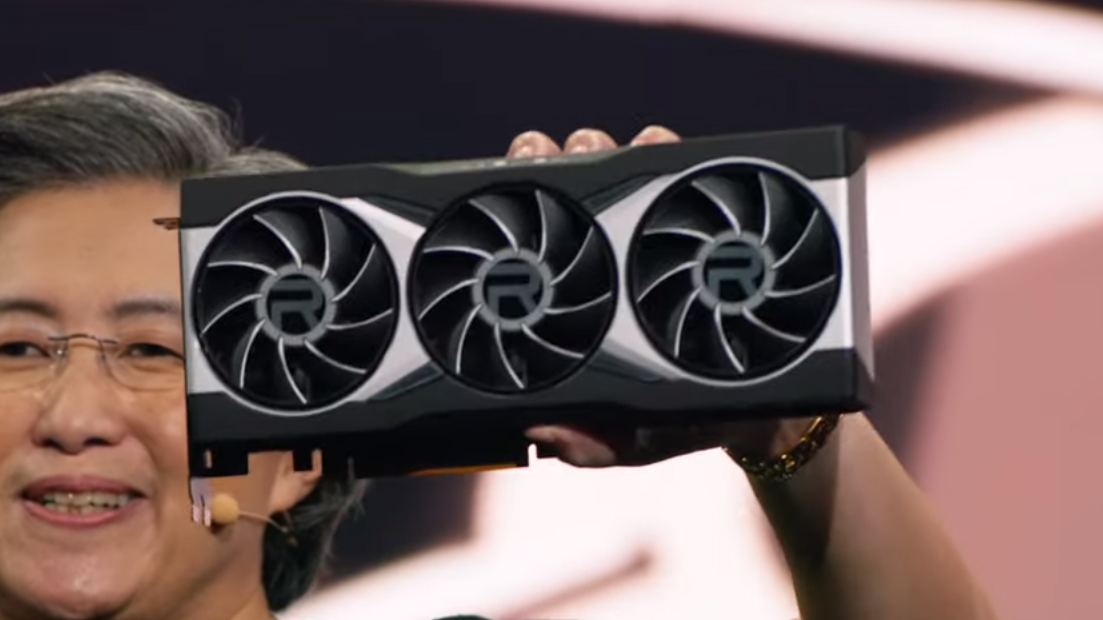AMD promises RDNA 3 GPUs will be as big a leap forward as Big Navi
Zen 4 won’t be too shabby either, you’ll be unsurprised to learn…

AMD’s Big Navi graphics cards featuring its RDNA 2 architecture aren’t even out yet – they go on sale in a week on November 18 – but already the company is talking up the successor RDNA 3-powered GPUs, and how they will be as big a step forward as the RX 6000 family.
As you may be aware, the RDNA 2 cards (initially the Radeon RX 6800, RX 6800 XT, and RX 6900 XT) represent a huge leap of 50% in terms of performance-per-watt achieved – the performance of the GPU relative to the power used – and RDNA 3 will do the same, AMD already claims.
- AMD RX 6900 XT: everything we know about the RTX 3090 killer
- We'll show you how to build a PC
- These are the best graphics cards
This came to light in an interview with AMD’s Executive Vice President, Rick Bergman, conducted by The Street, in which he was questioned about whether similar performance-per-watt could be expected with RDNA 3 (which will be AMD’s third-gen Navi cards).
He replied (bolding is ours for emphasis): “Let’s step back and talk about the benefits … So why did we target, pretty aggressively, performance per watt [for] our RDNA 2 [GPUs]. And then yes, we have the same commitment on RDNA 3.
“It just matters so much in many ways, because if your power is too high – as we’ve seen from our competitors – suddenly our potential users have to buy bigger power supplies, very advanced cooling solutions. And in a lot of ways, very importantly, it actually drives the [bill of materials] of the board up substantially. This is a desktop perspective.”
Bergman continues: “So [there are] actually a lot of efficiencies ... if you can improve your perf-per-watt substantially. On the notebook side, that’s of course even more obvious, because you’re in a very constrained space, you can just bring more performance to that platform again without some exotic cooling solutions ... We focused on that on RDNA 2. It’s a big focus on RDNA 3 as well.”
On the ray tracing front, Bergman also gave out a little bit of additional info on Big Navi’s performance.
Get daily insight, inspiration and deals in your inbox
Sign up for breaking news, reviews, opinion, top tech deals, and more.
He observed: “Our goal was at 1440p [resolution], to have a great ray tracing experience. And that was kind of the performance level that we targeted. Now it depends on particular games and everybody’s systems and so on, but I think you’ll find that we have very good ray tracing performance overall.
“And the game support will be strong as we go through 2021, because again, we get that great leverage. It’s just built in: You support ray tracing on Microsoft or Sony [consoles], you’re supporting AMD on the PC side as well.”
Zen 4 CPUs
Finally, Bergman also touched on Ryzen processors built on the Zen 4 architecture (and a 5nm process, it’s believed), which will succeed the Zen 3 tech that was introduced with Ryzen 5000 (Zen 4 chips are expected to land early in 2022).
The Street asked how much of the performance gains with Zen 4 would be driven by IPC (instructions per clock benefits of the new architecture), as opposed to boosts delivered by faster clocks and more cores.
Bergman replied: “[Given] the maturity of the x86 architecture now, the answer has to be, kind of, all of the above. If you looked at our technical document on Zen 3, it was this long list of things that we did to get that 19% [IPC uplift]. Zen 4 is going to have a similar long list of things, where you look at everything from the caches, to the branch prediction, [to] the number of gates in the execution pipeline. Everything is scrutinized to squeeze more performance out.”
He added: “Certainly [the manufacturing] process opens an additional door for us to [obtain] better performance-per-watt and so on, and we’ll take advantage of that as well.”
There are no surprises in that response, really, but clearly enough AMD expects Zen 4 to be a major leap just as with RDNA 3.
Bergman was also questioned on whether AMD planned to bring out Zen 3-based Threadripper chips, to which he responded: “I can’t talk about unannounced products, but we’re committed to the Threadripper family. And so you could certainly expect that we’ll in the future continue to have products in that particular area. Absolutely.”
- Check out all the best gaming PCs
Via Wccftech
Darren is a freelancer writing news and features for TechRadar (and occasionally T3) across a broad range of computing topics including CPUs, GPUs, various other hardware, VPNs, antivirus and more. He has written about tech for the best part of three decades, and writes books in his spare time (his debut novel - 'I Know What You Did Last Supper' - was published by Hachette UK in 2013).